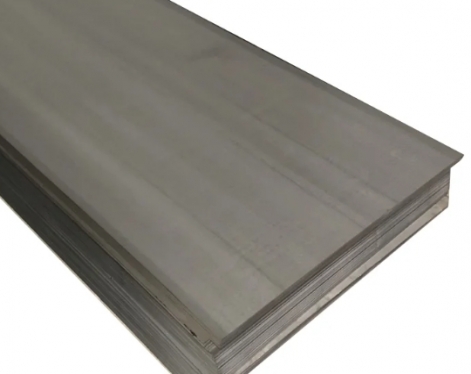Carbon steel categories
Carbon steel can be categorized depending on the chemical composition and characteristics of the product. Mild steel also falls under the low carbon steel category as it is comprised of similar carbon content. Plain carbon steel is free from alloys and can be placed in four categories:
1. Low carbon steel or mild steel
2. Medium carbon steel
3. High carbon steel
4. Ultra-high carbon steels
Mild steel
Mild steel is the type of carbon steel where it contains very low amounts of carbon. Approximately, it is 0.16–0.29% by weight. This steel is very cheap and most commonly used. It is malleable and ductile but has low tensile strength. Mild carbon cannot be hardened by heat treatment.
Mild steel is the mildest type of carbon steel and has a comparatively low amount of carbon. Mild steel can also have other elements such as manganese, silicon and trace amounts of phosphorous. These additional elements protect the integrity of the structure of metal iron by preventing dislocations within the iron crystals. Carbon acts as a hardening agent, and the percentage of carbon added is directly proportional to the strength of the steel; the strength of steel generally increases with the percentage of carbon added.
Mild Steel pipes are manufactured using low carbon steel. Due to low carbon content the pipes do not harden and are easy to use. As MS Pipes are made from mild steel they can easily be welded and formed in various shapes and sizes for pipelining and tubing purposes. These are generally used for drinking water supply i.e. Plumbing, Firefighting, HVAC but can also be used in various other Industrial and Engineering applications. These pipes are usually coated with other metals/paints/varnish etc to prevent it from rusting but extra care should be taken to prevent it under extreme conditions.
Mild steel seamless pipe
Mild steel has very low carbon percentage compared to other carbon steel. Mild steel has high ductility, and it is malleable, whereas other carbon steel types have low ductility. Mild carbon cannot be hardened by heat treatment, but other types of carbon steel can be hardened by heat treatment. Mild steel is less strong and harder than other carbon steel types. Steel surface roughness Ra is usually expressed.
Pipe surface roughness is mainly manifested in the following aspects:
Surface roughness of the wear parts. The rougher the surface, with the effective contact surface area between the smaller, the greater the pressure, the faster the wear.
Carbon steel can be categorized depending on the chemical composition and characteristics of the product. Mild steel also falls under the low carbon steel category as it is comprised of similar carbon content. Plain carbon steel is free from alloys and can be placed in four categories:
1. Low carbon steel or mild steel
2. Medium carbon steel
3. High carbon steel
4. Ultra-high carbon steels
Mild steel
Mild steel is the type of carbon steel where it contains very low amounts of carbon. Approximately, it is 0.16–0.29% by weight. This steel is very cheap and most commonly used. It is malleable and ductile but has low tensile strength. Mild carbon cannot be hardened by heat treatment.
Mild steel is the mildest type of carbon steel and has a comparatively low amount of carbon. Mild steel can also have other elements such as manganese, silicon and trace amounts of phosphorous. These additional elements protect the integrity of the structure of metal iron by preventing dislocations within the iron crystals. Carbon acts as a hardening agent, and the percentage of carbon added is directly proportional to the strength of the steel; the strength of steel generally increases with the percentage of carbon added.
Mild Steel pipes are manufactured using low carbon steel. Due to low carbon content the pipes do not harden and are easy to use. As MS Pipes are made from mild steel they can easily be welded and formed in various shapes and sizes for pipelining and tubing purposes. These are generally used for drinking water supply i.e. Plumbing, Firefighting, HVAC but can also be used in various other Industrial and Engineering applications. These pipes are usually coated with other metals/paints/varnish etc to prevent it from rusting but extra care should be taken to prevent it under extreme conditions.
Mild steel seamless pipe
Mild steel has very low carbon percentage compared to other carbon steel. Mild steel has high ductility, and it is malleable, whereas other carbon steel types have low ductility. Mild carbon cannot be hardened by heat treatment, but other types of carbon steel can be hardened by heat treatment. Mild steel is less strong and harder than other carbon steel types. Steel surface roughness Ra is usually expressed.
Pipe surface roughness is mainly manifested in the following aspects:
Surface roughness of the wear parts. The rougher the surface, with the effective contact surface area between the smaller, the greater the pressure, the faster the wear.









